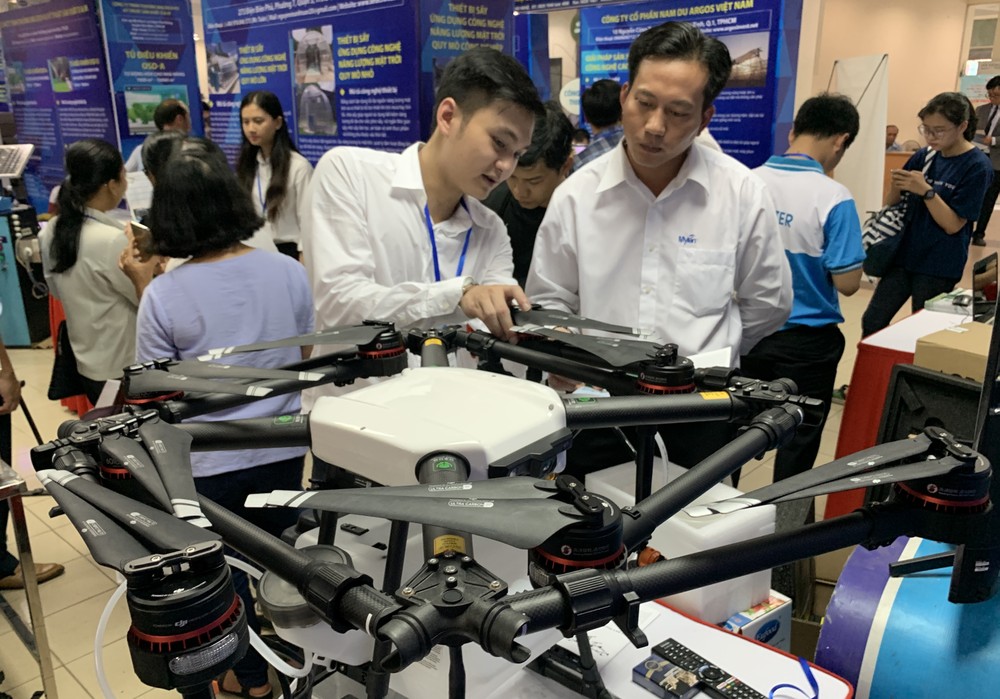
Ho Chi Minh City's Technology Exchange (Techport), despite its operational status, has struggled to achieve its full potential. Key challenges include a lack of effective incentive mechanisms, insufficient financial resources, and critically, an underdeveloped data infrastructure that fails to meet current practical demands. These limitations have hampered Techport's ability to be an impactful platform for technological exchange and innovation.
In response, Ho Chi Minh City is embarking on a significant initiative to reposition Techport. The goal is to transform it into a strategic national infrastructure platform and a vital technology-market convergence point. By addressing the aforementioned shortcomings, the city aims for Techport to become a key driver of growth in the digital age, fostering innovation and connecting the technological landscape with market needs.
Transactions are not identified
Techport, a digital platform under the Ho Chi Minh City Center for Science and Technology Information and Statistics (CESTI), is operational, managing technology data, supporting intellectual property consulting, and facilitating research result transfers.
However, it faces challenges due to businesses' unfamiliarity with technology transfer, inadequate incentive mechanisms, limited funding, and insufficient data infrastructure. Head Vo Duy Khanh of CESTI’s Technology Transaction Department revealed that to enhance effectiveness, the department must upgrade technology infrastructure, adopt a new operating model, and learn from advanced technology exchanges in Singapore and Shanghai.
He emphasized integrating artificial intelligence (AI), big data, and systems for technology evaluation and transfer monitoring. Techport focuses on three core functions such as technology transactions, consulting services, and partner matching. To date, it has hosted 18,649 technologies and equipment from 2,373 suppliers, with 658 projects seeking partners.
Between 2021 and 2024, the exchange facilitated over 6,000 technology search requests from individuals and businesses through technology supply and demand connection activities. However, tracking the number and value of technology and equipment contracts remains a difficult problem as most buyers and sellers connect directly with each other.
'Currently, most exchanges are limited to basic data sharing. Their operations are unprofessional, and the technology absorption capacity of small and medium enterprises (SMEs) remains weak. Moreover, the lack of coordination—where each locality develops its own exchange—has led to a fragmented market with limited scale and connectivity', said Deputy Chief of Office at the Ministry of Science and Technology Nguyen Manh Cuong.
Deputy Chief Nguyen Manh Cuong emphasizes that Vietnam must move beyond viewing technology exchanges as mere information portals. Instead, they should serve as robust market infrastructure, effectively bridging technology supply and demand, facilitating transactions, pricing, intellectual property consulting, and technology commercialization.
Update new technology applications
Deputy Head Phan Quoc Tuan of the Department of Technology Management and Standards and Quality Measurement at the Ho Chi Minh City Department of Science and Technology said that in line with the Politburo's Resolution No. 57-NQ/TW on advancing science and technology, fostering innovation, and driving national digital transformation, Techport will be developed as an integrated model combining digital and physical exchanges.
This platform will encompass key functions such as consulting, pricing, auctioning, legal support, financial connectivity, and international collaboration.
As a result, Techport will play a pivotal role within the innovation ecosystem, serving as a hub for technology information and intellectual property, ultimately bridging the gap between research and market deployment.
A representative of the Ho Chi Minh City High Technology Association highlighted blockchain technology as a future direction for managing technology transaction chains on Techport. By integrating blockchain, all transactions will be digitally recorded, ensuring authenticity, preventing counterfeiting, and enabling rapid verification of technological origins.
Chairman Dao Ha Trung of the Ho Chi Minh City High-Tech Association emphasized that, unlike conventional databases, blockchain preserves information in an immutable, securely linked sequence. This transparency strengthens trust among stakeholders—ranging from researchers and businesses to regulatory agencies—while minimizing fraud and counterfeiting risks. One notable platform currently being implemented is TrustChain, which has been utilized since 2018 for food traceability and has demonstrated practical effectiveness in the southern largest city.
The Ho Chi Minh City High-Tech Association has announced its readiness to offer free connection and data storage between Techport and the TrustChain platform. This initiative aims to bolster copyright and trademark protection for businesses and organizations, providing a crucial advantage as they expand into international markets.
Deputy Director Nguyen Thi Kim Hue of the Ho Chi Minh City Department of Science and Technology emphasized that Techport's development is not only a necessity but also a core strategic direction. This is clearly outlined in the plan No. 1413/KH-UBND dated March 3, 2025, from the Ho Chi Minh City People's Committee and the Politburo's Resolution No. 57-NQ/TW. Techport is envisioned as a strategic infrastructure designed to effectively commercialize knowledge and intellectual property, thereby driving innovation and digital transformation to meet the evolving demands of science and technology activities.
























